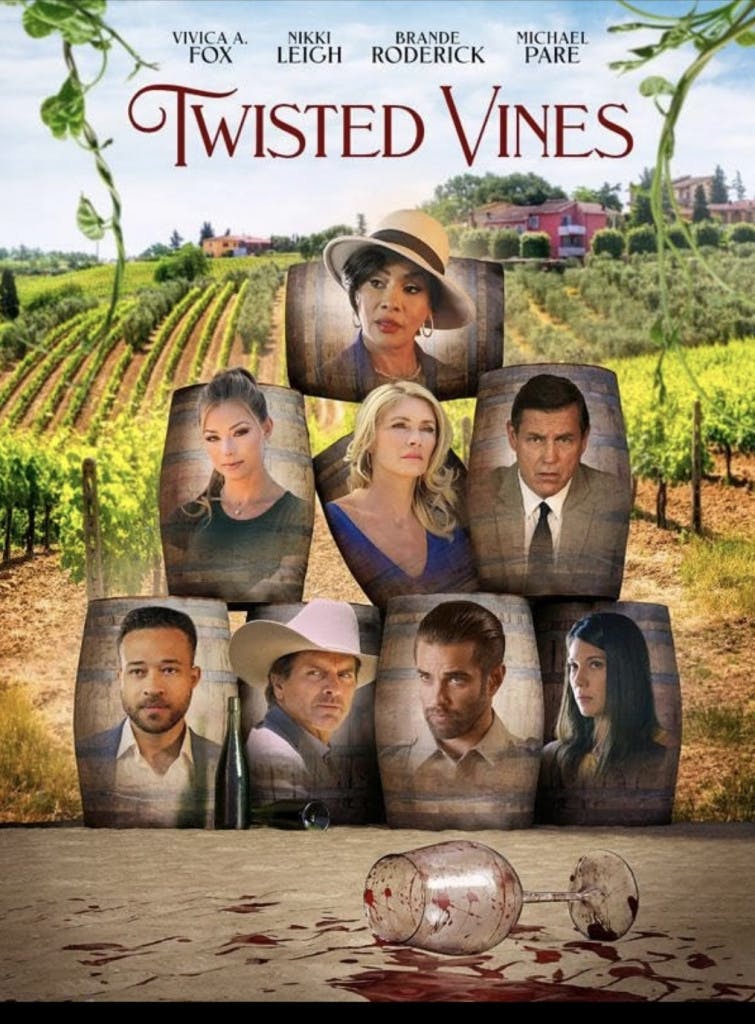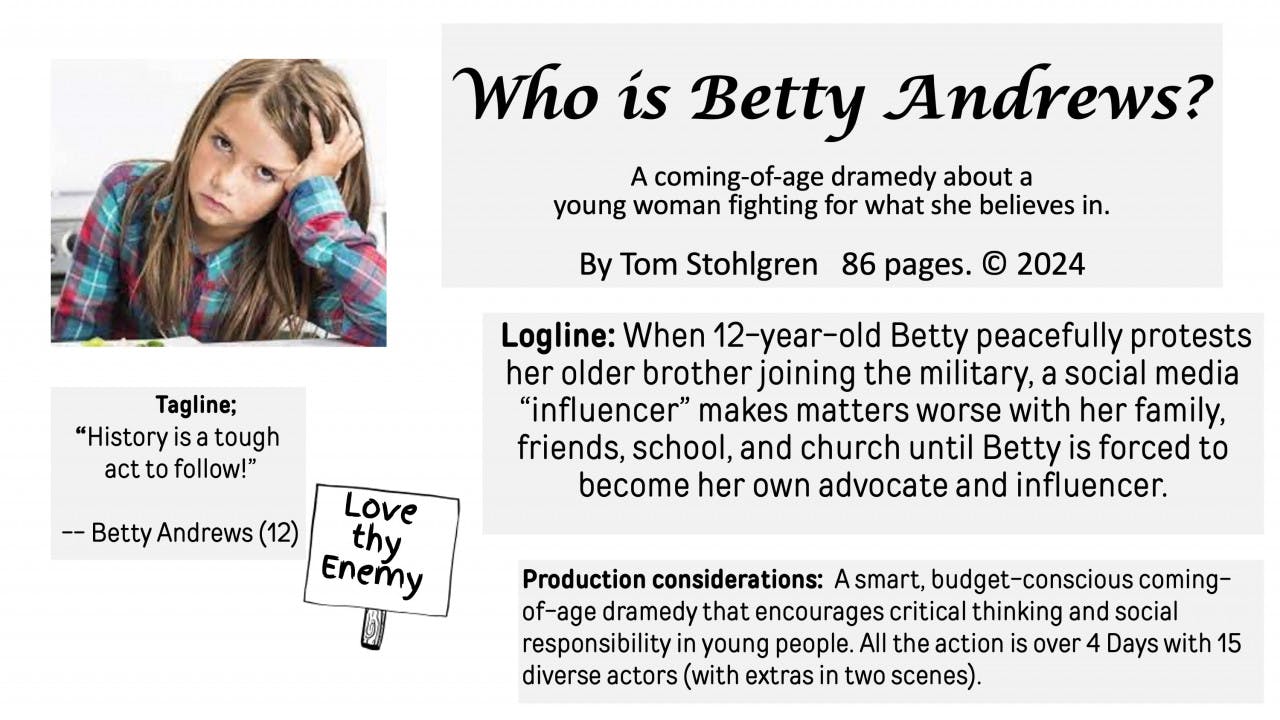4 Elements To Consider When Selecting Script Topics

4 Elements To Consider When Selecting Script Topics

I recently uploaded my 85th feature script onto my loglines page on Stage 32. In a subsequent exchange of comments, RB suggested that I write a blog about how I develop my ideas for scripts. My kneejerk response was, “That’s easy. For me, it’s like making popcorn." Below are the four elements I consider when selecting script topics. With a recent example of the four elements at work from my most recent script.
1) Stay True To Your Core Values
Oscar Wilde may have said, “Be yourself; everyone else is already taken,” but the history of the quote is murkier than its sage advice. I prefer Megha Desai’s updated version, “To thine own brand be true.” That forced me to consider another question I’ve been avoiding asking: “Do I have a “brand?” That was a tougher question than I realized.
I admit to being a generalist. I love movies, big and small, and almost every genre. I avoided writing senseless violence, porn, and musicals, at least, so far. I’ve written micro-budget to high-budget scripts, but I like to be budget-conscious when I outline an idea. I get more requests for contained scripts with a few locations and small casts. I’ve written more than a dozen single-location scripts with some success.
I’ve written across most genres (e.g., thriller, comedy, horror, drama, Sci-Fi, and action-adventure) and I’m a fan of cross-genre stories to keep an audience guessing. I’ve merged comedy and horror, comedy and murder mysteries, and comedy and action. I must like adding a bit of comedy to everything I write. So, it’s hardly a brand in the typical sense of the term. But there are some consistent features across most of my scripts that might help me pick my next topic.
First, over 80% of my scripts have strong, smart leading characters who are female or minority (i.e., still very much underrepresented in the film industry). I tend to look for interesting and unique topics that can highlight a novel lead character. For a recent script, “A Most Unusual Christmas,’ I recalled how two busloads of immigrants were dropped off in front of Vice President Kamala Harris’s house on a freezing Christmas Eve (2020). I thought it would “instructive” if we fictionally followed an intelligent and pregnant immigrant who happened to be Mayan from the jungles of Belize.

I might be secretly drawn to murder mysteries (Whodunits) because of my training as an environmental scientist. I got to hang out with top scientists asking difficult questions with amazing critical thinking skills and following the scientific method – a lot like police detectives and amateur sleuths. My first produced script, “Twisted Vines,” with co-writer Corinne Sbeih, was set in a single location (a winery), with a small cast, with all the action taking place over two days. The director (Jihane Mrad Balaa) and a great cast brought it to life and an intelligent female sommelier sniffed out the killer. Critics called it an old-fashioned noir whodunit. I’ve optioned more Christmas movies than thrillers, but my next script will likely be another suspense thriller or whodunit with a smart female lead.
To be true to my brand, I may stick to telling compelling stories with a minimal cast, no large crowd scenes, and limited special effects. Maybe I’m aiming for independent producers, or maybe it’s to allow producers to spend more funding for highly recognized actors to help sell the film. POP!

2) Know Your Audience
I learned to appreciate Gen Z movies (currently ages 11- 27) and movies for Millennials (currently ages 27-42); people who have much of their lives ahead of them. According to Kayla Cobb, Senior TV Reporter for “The Wrap” (March 12, 2024), 71% of younger people say they want to see more content from independent and smaller creators. That’s welcomed news for writers of independent and art-house films, and for the budget-conscious scripts I like to write. I’ve written a few scripts for younger audiences and a few for animation “for the entire family,” but most of my scripts are aimed for adult audiences. Before I start writing a script, I set my mind on a particular “rating” to keep the voice and language consistent. I’ve also written a couple of comedies and Rom-Coms for middle-aged adults, but they almost always contain supporting roles for younger cast members. I like to imagine the broad range of ages, ethnicities, and abilities of my audience in the theater. POP POP!

3) Pick A Topic Of Interest To You & Producers
After considering your brand and audience, it’s “decision time.” What is the topic of your script that will inspire you to research, outline, cast (in your mind), and write a script that will entice a producer or production company to option your script and produce the film? I’ve asked that question 85 times, knowing the rare probability of success in the screenwriting business. Contained horror scripts can have a high return on investment as was the case for “The Blair Witch Project” and “Paranormal Activity. High-budget action films such as “Avatar,” “Jurassic World,” and “Avengers: Endgame” continue to win big at the box office. Those genres don’t appeal as much to me as a writer. I don’t know those worlds well enough to write a compelling story.
In my scripts, I like to explore aspects of elevated human behavior and decision-making, typically with smart characters who rely on critical thinking skills, science, and moral human nature. I write what I know. I draw on decades of training diverse graduate students in university settings and traveling around the globe. I like to explore the depths and hopes of contemporary humanity. There may be a smaller market for those films, especially with my proclivity for female and under-represented lead characters, but I accept that challenge and the consequences as a writer. I hope compelling stories with a social conscience will entice producers. I like to write scripts that move the needle and change the world. POP POP POP!

4) Keep In Mind How You’ll Market Your Script
I address this element in my mind while I draft the script and the pitch deck. It usually takes me a week to pick a topic from a few that are rolling around in my head. It takes another week to complete a logline, script outline (with detailed beats), and a cast table summarizing each cast member’s description, backstory, motives, secrets, low-point, and high-point (their arc). While I write the script over the next month, I jump back and forth to my draft pitch deck because I sincerely work toward the film project having a positive return on investment (ROI). I save writing the synopsis until the end of the first draft. However, nothing is written in stone. I realize that I’ll be re-writing (and re-writing) for another few weeks to bring the script and the pitch deck to market standards.
I let my literary manager know when I’ve finished a script and pitch deck. She helps with marketing, but I do a fair amount too. That’s a topic worthy of another blog, and I would rather leave this one with a recent example of the process. Now it’s time to make some popcorn...

An Example Of The 4 Elements At Work
I’ll use my latest script, “Who is Betty Andrews?” as an example, but all my scripts originate from an insatiable curiosity about life. I imagine millions of unpopped kernels of corn as “possible ideas for a script.” I happened to be reading “Lysistrata,” an ancient Greek comedy by Aristophanes. I had read it in community college and remembered it had an anti-war theme. Its 31 pages written in 411 B.C.E. were remarkably relevant today given the wars around the globe and how little we’ve evolved as a species to eliminate violence as a means to resolve conflict. POP! I knew that Greek women protested the war by denying their husbands sex. POP. In my research, I discovered that the comedy (POP) play was banned in the U.S. from 1873 to 1930. POP! More interesting, I learned that the book had as much to do with women’s rights as it was about the anti-war theme. POP!
I thought, how could I bring this important message into a contemporary film script?
I picked an average unassuming 12-year-old female for the lead (an every-girl). In this case, a bit of an underachiever who makes “mistakes” in life by using two-page summaries on Google to help with her book reports. She selects an unapproved book, “Lysistrata,” rushes her shabby book report, and gets her parents hauled into the school’s counselor’s office in the first scene (POP), where she secretly records the counselor on her smartphone (POP).
From then on, the kernels start popping left and right as everything gets blown out of proportion. There’s a social media “Mega-Influencer” who turns up the heat by sharing the story online (POP, POP, POP). There are repercussions among the lead character’s friends (POP), and at home (POP), church (POP), and school (POP). Add in a coming-of-age element to complicate the young woman’s life, and POP. You get the idea. I outline the characters (backstories and their arcs), and the “beats” (taking liberties with Save the Cat), and I spend a lot of time enjoying the popcorn in Act III.

In summary, it may be unhelpful to know that ideas for scripts come from everywhere: books, TV, films, work, travel, home, conversations, and experiences. That doesn’t narrow it down, and it shouldn’t. Find a kernel that POPS for you and find your reason for writing. Stay true to your brand, know your audience, pick a topic of interest to you and producers, and keep in mind how you’ll market your script. My reasons for writing are similar to Kurt Vonnegut’s, who said, “not to get money and fame, but to experience becoming, to find out what’s inside you, to make your soul grow.” POP!
I enjoy and learn from all the feedback I receive from the Stage 32 community, friends and colleagues who review my work, and from the comments and thousands of rejections I’ve received from producers. I keep writing.
Please leave comments and suggestions below about your process. I’m always learning.
Let's hear your thoughts in the comments below!
Got an idea for a post? Or have you collaborated with Stage 32 members to create a project? We'd love to hear about it. Email Emily at blog@stage32.com and let's get your post published!
Please help support your fellow Stage 32ers by sharing this on social. Check out the social media buttons at the top to share on Instagram @stage32 , Twitter @stage32 , Facebook @stage32 , and LinkedIn @stage-32 .
About the Author

Tom Stohlgren
Author, Researcher, Screenwriter
Tom Stohlgren, Author LLC Thomas Stohlgren (970) 217-4498 tjstohlgren@ REPRESENTATION: Eleni Larchanidou, LLM Literary & Talent Manager Fully Qualified German and International Lawyer E: managerelenilllm@ Tom Stohlgren is an award-winning produced screenwriter, recognized novelist...





